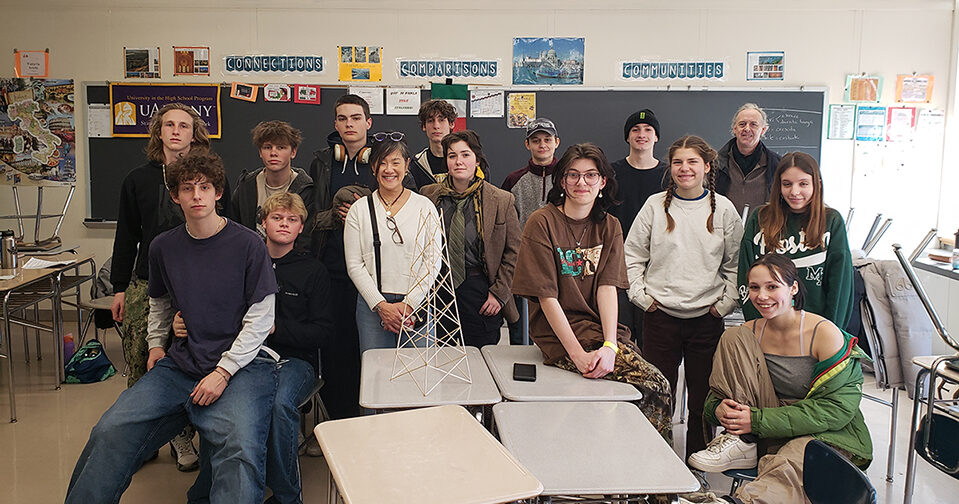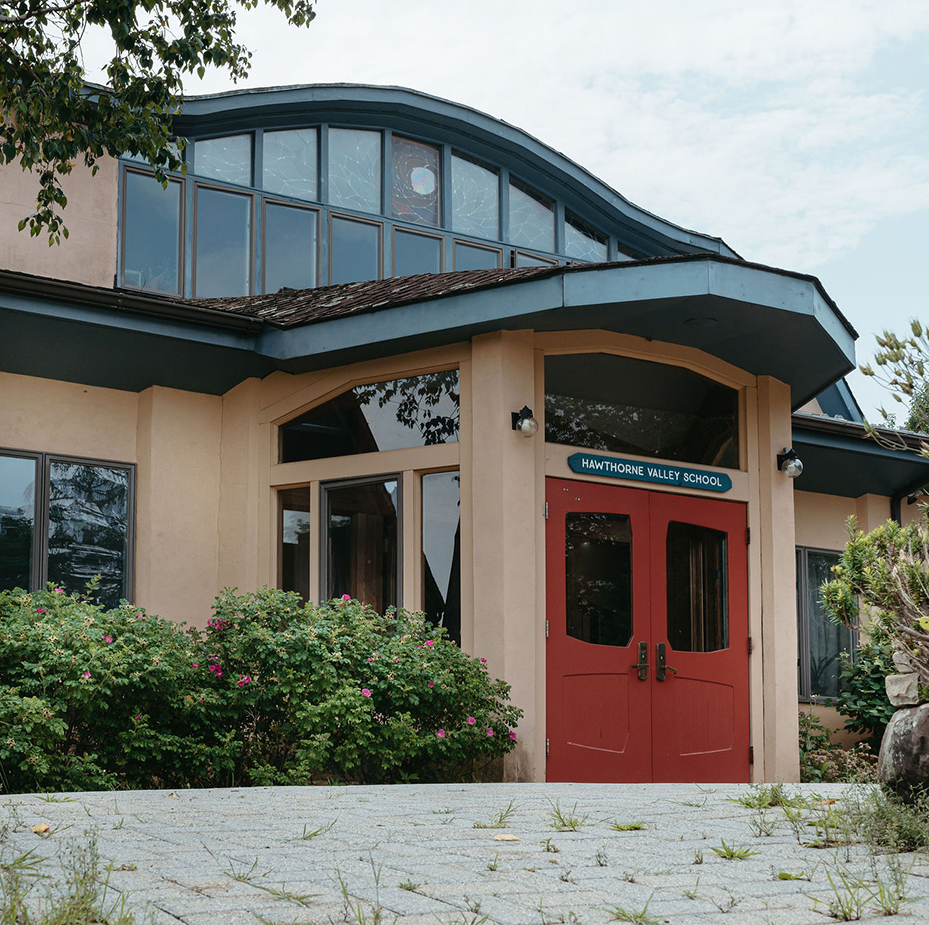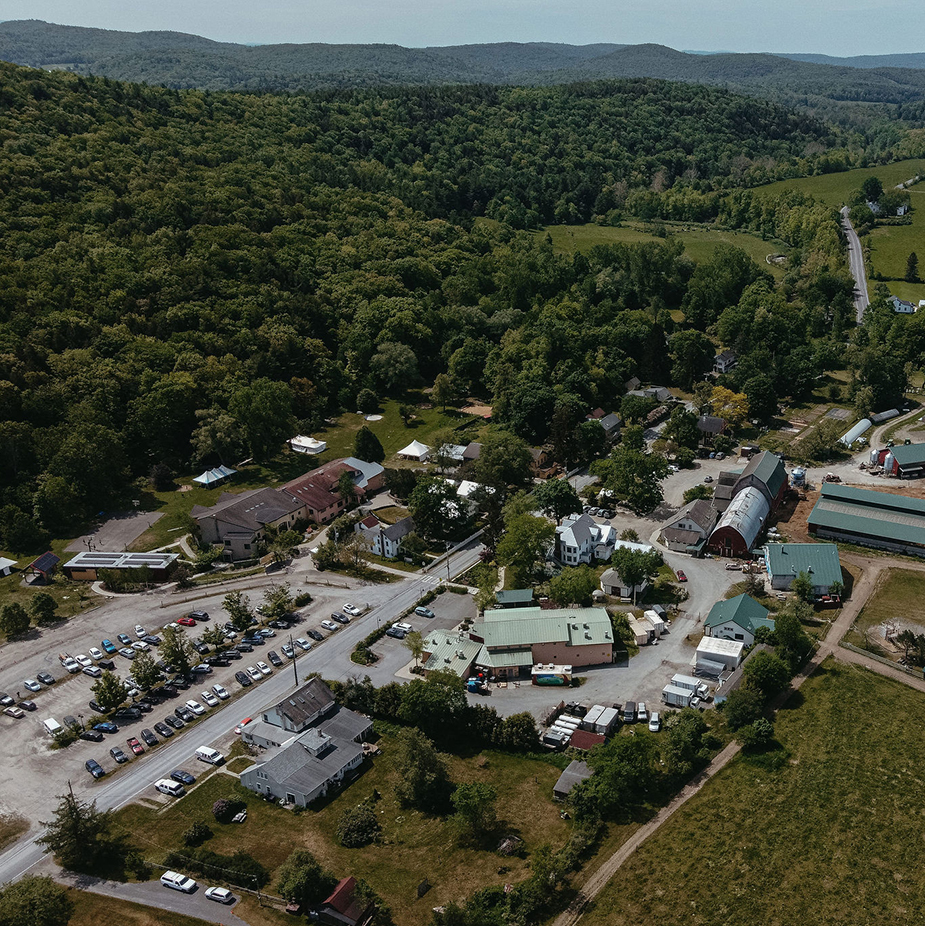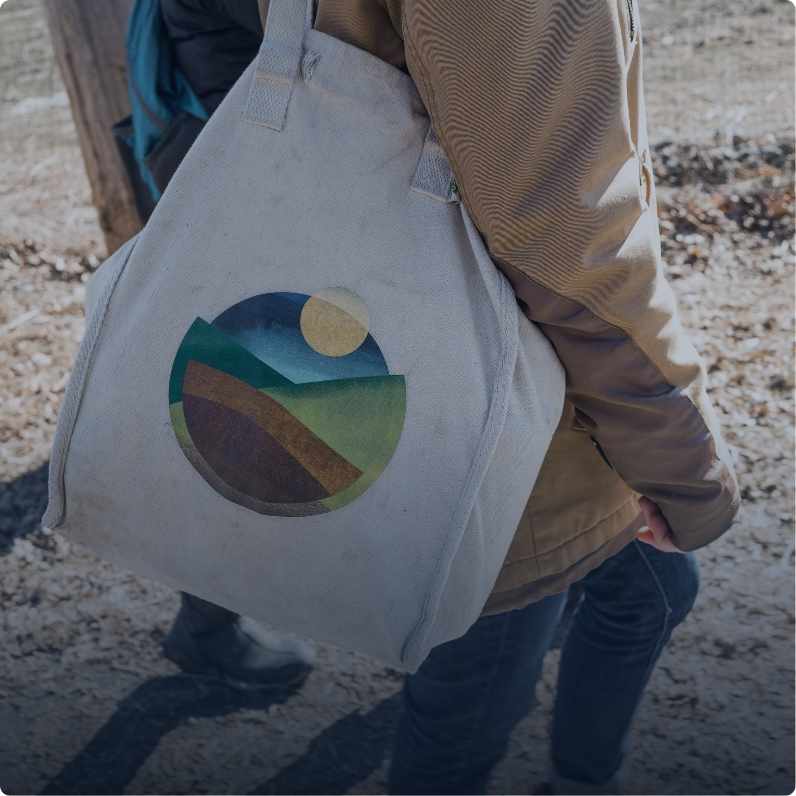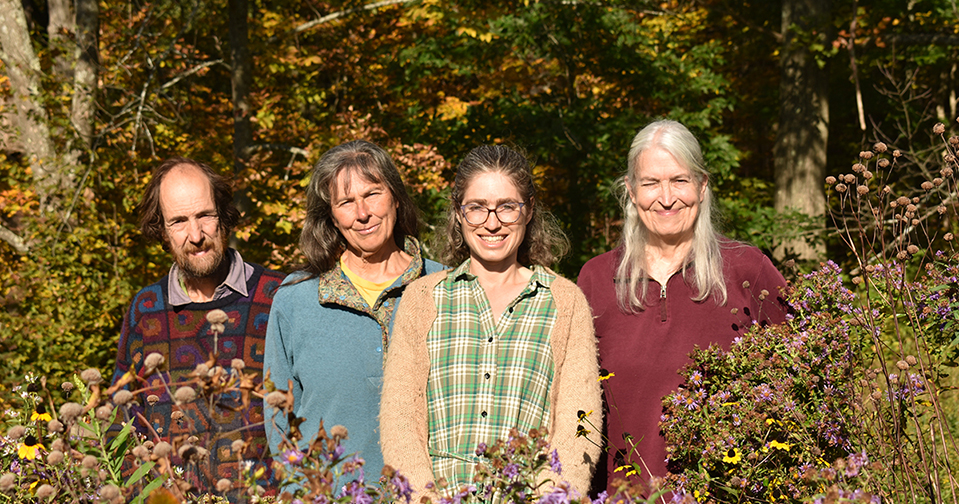
Hawthorne Valley Farmscape Ecology Program is pleased to announce the publication of From the Hudson to the Taconics: An Ecological and Cultural Field Guide to the Habitats of Columbia County, NY, written in collaboration with Hudsonia Ltd, designed by Ron Toelke Associates, and published by Black Dome Press. A Book Launch Celebration will be held on Sunday, May 5 at 2pm at Hawthorne Valley Waldorf School.
The Field Guide offers readers an in-depth look at the ecology, history, and cultural impact of habitats all over the county that has been informed by over two decades of ecological and cultural research in Columbia County conducted by Claudia Knab-Vispo, Anna Duhon, Conrad Vispo, Gretchen Stevens, and the staff at Farmscape Ecology Program and Hudsonia.
“This project really builds upon a biodiversity study Hudsonia conducted for the Hudson River Estuary,” says Claudia. “We felt like we could do something that goes deeper and is more specific to our area, and we came up with this concept of doing a habitat guide that’s not just focused on the ecology but also on what the habitats mean for people and how they perceive them.”
The Field Guide features 36 discreet habitat chapters and was designed to appeal to a wide audience of readers—from land stewards and scientists to hikers and backyard gardeners. Each chapter offers tables and descriptions highlighting the plant and animal species distinctive of that habitat with beautiful photographic illustrations, habitat identification tools, and stewardship considerations, with most also including current and historical perspectives on the landscape in the county.
“[Through the Field Guide], you can enter this world of not just the story of how that habitat might have come to be, but these first person accounts of what people thought about it,” says Anna. “It’s a really interesting way to present the arc of history and to carry that into your present experience of a habitat.”
The book also looks at so-called “ghost” habitats which have been lost from Columbia County, a feature that the authors hope will invite readers to think more critically about the stewardship of current habitats.
“I think it’s really easy for us to look around us and assume that the way things are now is the way they have always been and will always be,” says Conrad. “Going back in history, you can quickly realize that is not the case. There’s been dramatic huge changes in the past to get to now, and so very likely we can have huge changes going forward that we should be conscious of.”
The authors hope readers will be encouraged to take the Field Guide and explore the natural world of the county for themselves.
“I think readers will be struck by just how great the diversity is,” says Gretchen. “Lots of people are familiar with forests, and think of hardwood forests or conifer forests. But the Field Guide describes 12 different kinds of forests that to someone who isn’t looking closely might look quite similar to each other.”
In addition to the Book Launch Celebration on May 5, the authors will hold talks and ecology walks based on Columbia County’s habitats throughout the summer. View the calendar of upcoming events here.
The ecological and cultural research conducted by Farmscape Ecology is made possible through the support of generous donors. Click here if you'd like to contribute to Farmscape's on-going research.
“The Field Guide offers an ability to explore a whole range of different habitats, from familiar places like lawns to some very rare habitats like fens. We hope that readers will be able to see the value in all the different habitats–because no habitat has no value–and also be able to start discerning a little bit. To look at a pasture and realize that it is mostly European plants that are there doing their work to feed the cows, but right next to it you have a floodplain forest where 95% of the plants growing are native plants and have had their home there for a long, long time.”
— The Field Guide Authors
The ecological and cultural research conducted by Farmscape Ecology is made possible through the support of generous donors. If you'd like to contribute to Farmscape's on-going research, click here.

